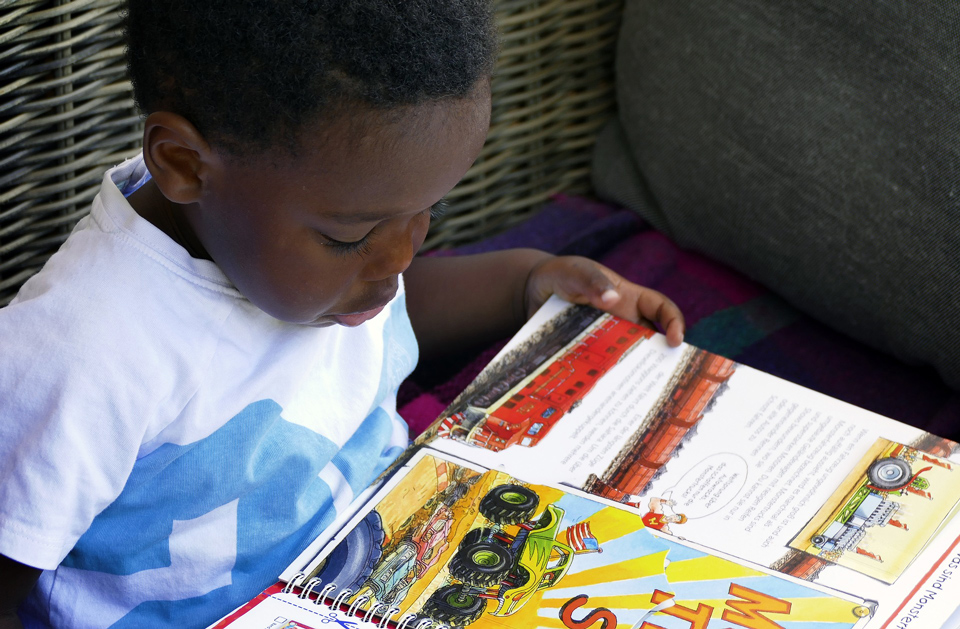Children with high learning potential, especially those who display Intellectual Overexcitability, are highly curious and voracious in their pursuit of knowledge in their areas of interest. This might seem like a perfect trait – being able and willing to occupy themselves independently ad infinitum – however, it is not always quite that simple! How can we ensure the wellbeing of intellectually overexcitable children?
1. Understand their overexcitability
Above all else, a child with intellectual overexcitability needs support and understanding of their overexcitability. Never underestimate the reassurance a child receives when they know that their parents “get it”. As parents, make sure that you understand your child’s overexcitability by reading up and researching it, then you will be best placed to know how to support them and to show that you understand them. This will be a very valuable source of reassurance.
2. Brace yourself for a mismatch between their interests and their schoolwork!
Unfortunately, the hope that intellectual overexcitability will lead to a child devouring their work at school or homework set by their teachers, offering an easy ride for parents as a result, is quite often a naïve one to say the very least. Sadly for the blood pressure of parents, a child having intellectual overexcitability in no way guarantees that their enthusiasm and voracity will be directed towards the national curriculum; they may very well have their own (very determined!) ideas about what they want to research or learn. While in some cases there can be an interest in the work set by school, albeit often with a desire to delve deeper than the school lesson allows, this, unfortunately, is not a given. Intellectually overexcitable children have their own, very different ideas about what they want to spend their time studying and can be disaffected by the lack of challenge or subjects they are required to study at school. Be prepared to advocate for your child with school – your child’s interests may be something a teacher can base a piece of work around, or they may be willing to let a child work on a project of interest once their regular work has been followed. You might even want to approach the possibility of flexi-schooling with the school, allowing your child time at home to deep dive into a subject area.
3. Allow them time to follow their interests
At home give them the time to pursue their own interests, allowing them to really express their overexcitability; to really enjoy all sorts of extended flights of fancy; to really get stuck into their passions. While your child may be someone who loves to take part in extra-curricular classes, you may find that a trip to the library, time spent (supervised for younger children) on the internet, listening to podcasts or watching a good YouTube channel will also capture their imagination (and be a bit cheaper!). See the Learning Resources page on our website for more ideas and inspiration. Remember to take an interest in what they are interested in – you might not want to deep dive into the whichness of why on a subject you hated as a child yourself – but showing a genuine interest will connect you both now and establish the habit of communication between you when they are older and naturally less inclined to involve you in their day.
4. Think up a daily stumper…
…for an open-ended, see-where-it-goes type starter for ten which can get their intellectual juices flowing. For stumper inspiration, have a look at our Plus Portal questions on social media, or read our “Thunks” blog. You could also have a look at our advice sheet, Developing Critical Thinking Skills, PA702, for even more ideas.
5. Encourage independence
Whatever their starting point, gently work young people towards their next level in independent learning (whilst always ensuring age-appropriateness, of course!). It provides a very welcome positive, in the form of both a well-earned sense of accomplishment and an increased sense of agency, as they are able to more independently satisfy their intellectual overexcitability. Whether it is simply heading to the encyclopaedia or dictionary instead of a parent, or really taking control of their learning by developing their self-regulation skills (see our advice sheet, Helping Children Develop Self-Regulation Skills, PA324), encouraging independence in their learning may be good for the whole family!
6. Keep an eye on their emotional wellbeing
Due to their asynchronous development, a child with intellectual overexcitability may well have a heightened awareness of current events but not the emotional skills that would enable them to deal with it. Understand that this is a potential issue and keep an eye out for signs. Look out for anxiety, reassure them, and remember that, however high their cognitive ability, they are still children. Never expect their emotional resilience to equal their intellectual understanding. Talk things through if needed or offer pure reassurance if that feels right for you and your child.
7. Make time for relaxation
As important as it is for us to help intellectually overexcitable children to pursue their intellectual interests and express their overexcitability, it is also important to be aware of the times when you need to help them to stop and switch off instead. Factor in calming activities to each day; for example, a relaxing walk, a bit of meditation or guided relaxation, listening to relaxing music, or by creating a calm corner in their bedroom dedicated to chilling out.
8. Check out our advice sheets on overexcitabilities
Have a look at our advice sheet PA610, Hypersensitivity (Dabrowski’s Overexcitabilities), for an overview of all five overexcitabilities, and also PA612, Enthused About Learning, for more specific advice on Intellectual Overexcitability.
9. Look after yourself
It can be full-on parenting a child with intellectual overexcitability. Constant questions and sheer relentlessness, whilst great attributes in many ways, can be exhausting at the best of times. Your own wellbeing is important, too. If it feels difficult to prioritise yourself, then remember that the better you feel, the better you can support your fabulous, yet exhausting, overexcitable children!
About the author: Caroline Hooton-Picard is an adviser for Potential Plus UK. She has a background in mental health, having worked for Suffolk Mind and also in private practice, and has a first class degree in Philosophy from the University of Essex. She also has a High Learning Potential daughter who keeps her very much on her toes!






